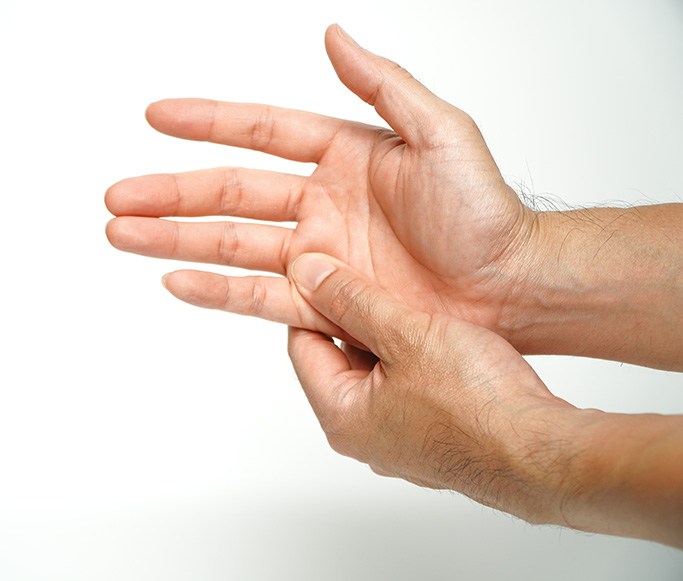If you are experiencing catching or popping when attempting to flex your fingers or thumb, you may have trigger finger. This condition can cause a finger to become stuck in a flexed position, which can make using your hand difficult.
What is Trigger Finger?
Trigger finger is a condition that affects the tendons that flex the fingers and thumb, making them difficult to move. It can “freeze” them in a flexed position in toward the palm. The ring finger and thumb are the most commonly affected digits, though any of the digits may be affected.
While anyone can develop a trigger finger, it is most common in individuals between the ages of 40-60. People with certain health conditions or professions may also have a higher risk of developing this condition.
Common symptoms of trigger finger include:
- A tender lump at the base of the finger or thumb on the palm side of the hand.
- Pain when bending or straightening the finger.
- The fingers or thumb locking into a flexed position.
- A popping, catching, or locking sensation when moving the finger or thumb.
The symptoms associated with trigger finger are usually worse in the morning, and stiffness gets better as the fingers are used throughout the day.
Treatment Options
A physical examination is usually enough to diagnose trigger finger, though ultrasound or X-rays may also be ordered.





